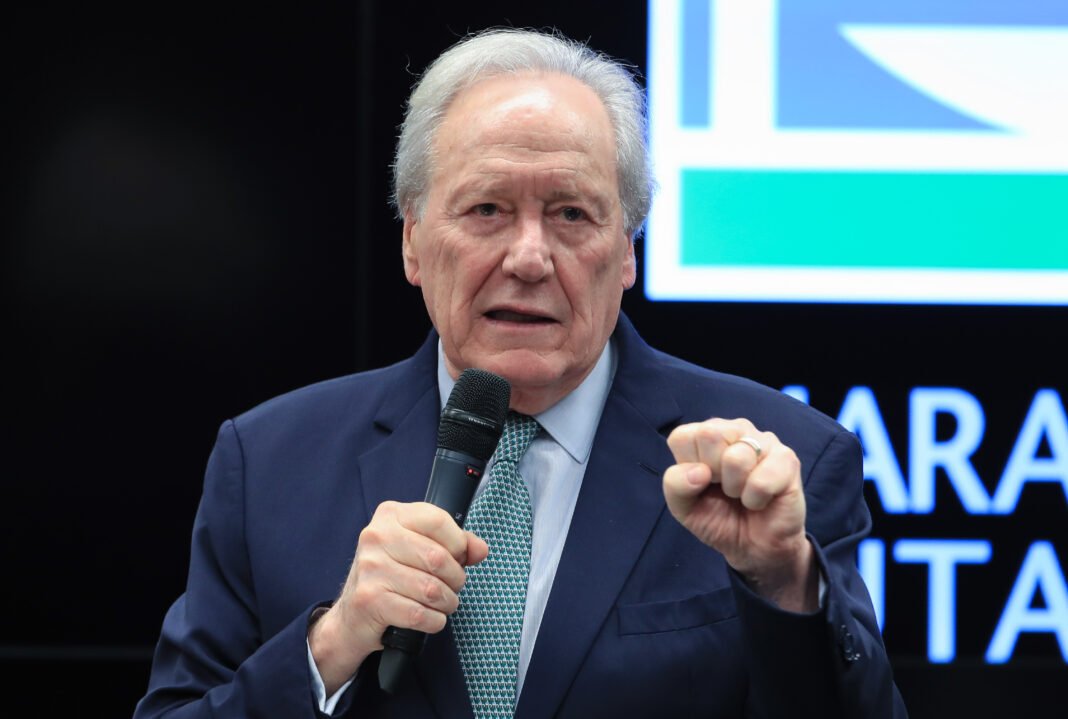The recent presentation of the “Public Security PEC” by the federal government has reignited the debate on the need for changes in the Brazilian policing model. The Public Security PEC focuses on adapting the competencies of police organizations and improving coordination between the different levels of government, with the aim of addressing the growing complexity of organized crime. However, it also includes provisions that reflect efforts toward democratic reform of the police, such as strengthening ombudsman offices and internal affairs departments.
This Content Is Only For Subscribers
To unlock this content, subscribe to INTERLIRA Reports.
Proposal in the Chamber
The Speaker of the Chamber, Hugo Motta (Republicanos), stated on Monday (26/05) that he asked deputies not to bring the Public Security PEC into the “partisan and electoral arena” and pledged to do everything possible to approve the government’s proposal, even with modifications. According to him, the proposed constitutional amendment (PEC) submitted by the Minister of Justice, Ricardo Lewandowski, represents a historic opportunity to advance decisively in the fight against crime. The proposal was sent to the Chamber of Deputies last month and is currently awaiting analysis by the Constitution and Justice Committee (CCJ), the first step in the legislative process.
Four Pillars
According to the Minister of Justice, Ricardo Lewandowski, the proposal is based on four pillars. The first is coordination among the various security forces across the federation, including intelligence sharing and joint operations. The second is the expansion of the National Public Security Fund and support for the penitentiary system. The third is the constitutional requirement that all police forces maintain independent internal affairs and ombudsman offices. The fourth involves changes to the roles of the Federal Police and municipal guards. Under the proposal, the Federal Police would investigate environmental crimes and local militias, while municipal guards would be responsible for overt and property-related policing, under external oversight by the Public Prosecutor’s Office.
Important Changes
However, deputies following the PEC negotiations indicate that one of the most controversial points in the government’s draft is the expansion of the Federal Police’s powers. Civil police forces have expressed concerns over potential encroachment on local investigations, even when these involve major criminal factions. The PEC expands the Federal Police’s scope by authorizing it to investigate crimes related to environmental damage and private militias. In practice, this could lead to the federalization of some cases that currently fall solely under state civil police jurisdiction.
Unified System
A key aspect of the PEC is the constitutional inclusion of the Unified Public Security System (SUSP). In addition to standardizing the distribution of police investigations nationwide, the SUSP would require governors to adopt national identity registries for their state’s residents. The system would also establish a unified criminal records database accessible to all states. These measures are not expected to face significant opposition from lawmakers.
Municipal Guard
On Tuesday (27/05), the Senate approved a Proposed Constitutional Amendment (PEC) that formally includes municipal guards and traffic agents within the country’s public security framework. The amendment ensures legal clarity regarding their responsibilities. It also authorizes municipal guards to engage in overt policing and collaborate in security policies and actions. Additionally, it grants these forces access to specific public security funds and broader authorization to carry firearms. The proposal now moves to the Chamber of Deputies.
Anti-Mafia Law
The Lula (PT) government is expected to present a bill in the coming months aimed at redefining the classification of criminal organizations in Brazil. Referred to by authorities and experts as the Anti-Mafia Law, the bill would establish a national agency to coordinate the fight against organized crime. Key objectives include increasing sentences for leaders of major criminal groups such as the First Capital Command (PCC), improving asset recovery from criminal organizations, and allowing the precautionary suspension of public contracts based on evidence of ties between contractors or suppliers and criminal groups.
Analysis:
The introduction of the Public Security Constitutional Amendment Proposal (PEC) and the announcement of a forthcoming “Anti-Mafia Law” represent meaningful steps by the federal government to address the growing sophistication of organized crime in Brazil. The effort to improve coordination between different levels of government through the Unified Public Security System (SUSP), along with the proposal to formalize internal affairs units and ombudsman offices, could help close long-standing gaps in policing strategy and accountability.
Institutional reforms such as these, if implemented effectively, may improve transparency and foster more effective oversight of police forces, particularly in response to frequent allegations of abuse during operations. However, the proposed expansion of the Federal Police’s investigative powers must be carefully evaluated to avoid conflict with state civil police forces, which already face structural challenges.
Sources: Fonte Segura; A Folha de SP [1], [2]; Extra; O Globo [1], [2].




